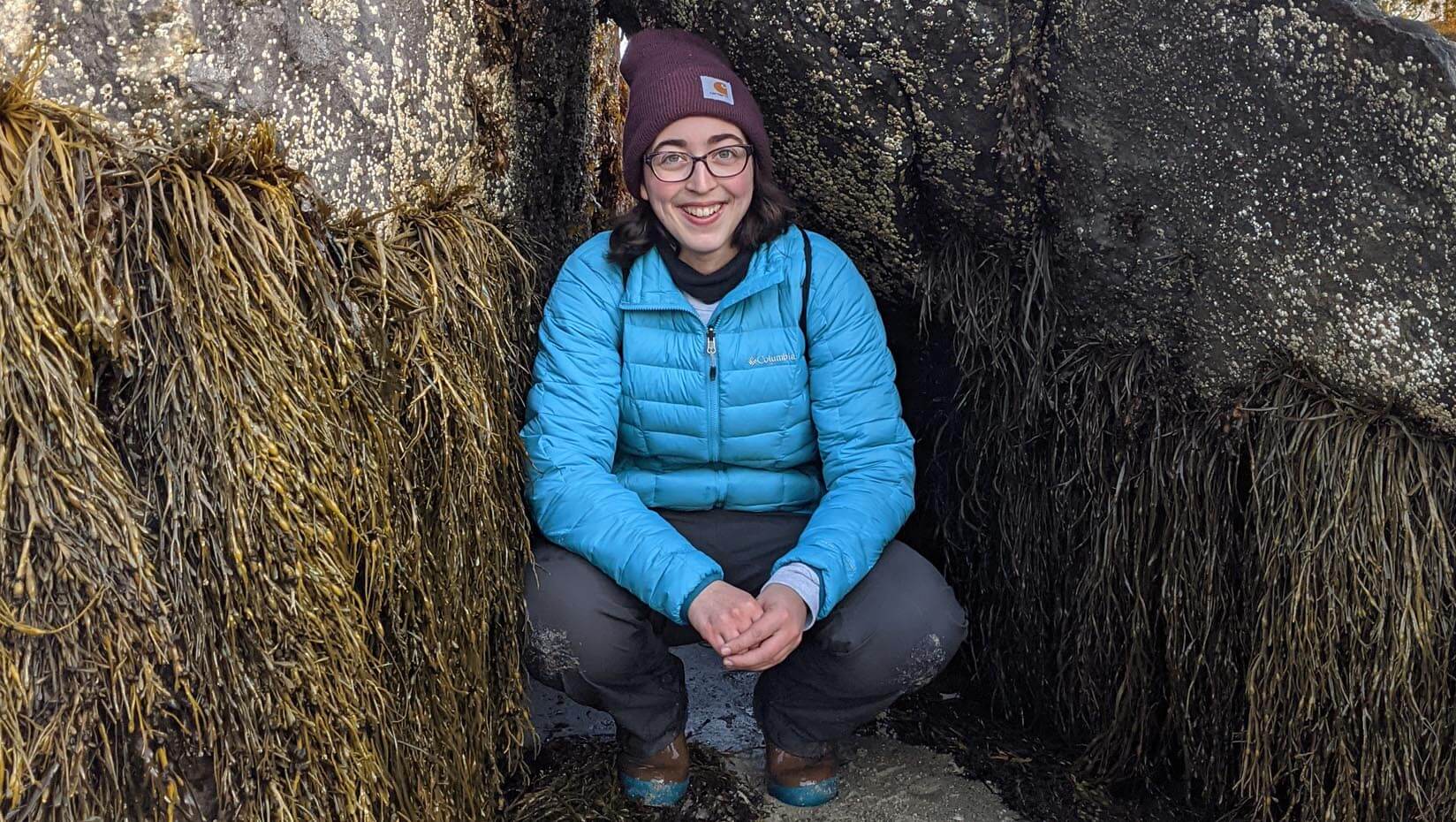
Jocelyn Cooper: Perspectives on deep-sea coral research
Jocelyn Cooper of Boxford, Massachusetts, is a University of Maine senior majoring in marine sciences with a concentration in marine biology. She is a UMaine Center for Undergraduate Research-Maine Space Grant Consortium Fellow and Brooke Olson Award recipient, conducting research in the Waller Lab, led by associate professor Rhian Waller, at UMaine’s Darling Marine Center, and mentored by scientific research assistant Julia Johnstone.
Cooper reflected on her capstone research this past summer and fall:
My internship at DMC this summer was an experience that challenged, strengthened and rewarded me with scientific experiences I will never forget. Over the course of the summer, I had the opportunity to interact with interns, grad students and scientists at DMC, as well as participating in a NOAA expedition of the New England Seamounts in which researchers led several underwater exploration dives to unexplored areas and the Sea Fellows program at DMC.
I worked in the Waller Lab with Waller, an expert in deep-sea coral biology and reproduction, and Johnstone, who mentored and guided me in a research project that will become my senior capstone. My research question: Was there a change in reproduction in the deep-sea red tree coral Primnoa pacifica in the Gulf of Alaska after a warming event called the “Blob” passed through the area between 2013 and 2015?
I reviewed previously collected and preserved slides of Primnoa pacifica to quantify spermatocyst distribution within coral polyps in order to graph and analyze patterns of reproduction and development. Conclusions of this research project may provide policymakers with reliable scientific data for use in the future.
The most important scientific lesson I learned is that mistakes are inevitable and scientific research is not to be viewed as a failure, but as an opportunity to learn and possibly make new discoveries. When I began to analyze my collected data, I assessed the measurements to not be of reliable accuracy. Therefore, I reviewed my methodology and adjusted the process to then demonstrate accurate data.
Another part of my internship involved participating in the NOAA New England and Corner Rise Seamounts Expedition. Waller was the biology lead scientist on board the Okeanos Explorer vessel. The dives were livestreamed and, via telepresence, I was able to interact with scientists from around the world as they discussed in the online scientific chatroom the deep-sea discoveries as they were occurring. I was amazed to see experts from multiple STEM fields collaborating for a common goal of ocean exploration.
During the dives, I had the chance to see organisms in their natural environment, which furthered my knowledge of these ecosystems more than I could have ever experienced in a classroom setting. Most importantly, this experience spurred me to think of what the next big questions of research will be from this expedition and its collections.
Throughout the summer, I participated in the Sea Fellows program with other undergraduate interns at DMC led by Heather Leslie, director of the Darling Marine Center. At the end of my internship, I presented the current progress of my research at the Sea Fellows Symposium. I gained an appreciation of the importance of effectively communicating research to audiences with varying scientific knowledge and interest.
During my senior year, I will complete my capstone project and present my research at the April 2022 CUGR Symposium. My summer internship experience at DMC has convinced me that I want to continue pursuing a research-based marine science career.
Contact: Margaret Nagle, nagle@maine.edu
